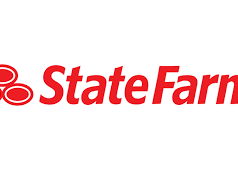We provide an overview of the South African government and political system which rest on a tumultuous history and complex social structure.
South Africa is a melting pot of cultures and languages, and the political landscape is just as broad and diverse as the country and its population. Similar to countries such as Germany, Japan, and the United States, South Africa is a constitutional democracy. Furthermore, it has a three-tier system of government – national, provincial, and local.
Political System And Government Of South Africa
South Africa is a melting pot of cultures and languages, and the political landscape is just as broad and diverse as the country and its population. Similar to countries such as Germany, Japan, and the United States, South Africa is a constitutional democracy. Furthermore, it has a three-tier system of government – national, provincial, and local.
History Of South African Democracy
The democratic system in South Africa is relatively new and stems from the country’s complex history of colonialism, apartheid, and a long struggle for freedom.
Although democracy in South Africa remains flawed, it was hard won. Following centuries of oppression through colonialism and apartheid, the South African people’s struggle for democratic freedom finally culminated in majority rule in 1994.
The first post-apartheid election took place on 27 April of that year. Nelson Mandela was sworn in as President of the first democratically elected South African government on 10 May 1994, after spending 27 years as a political prisoner. The Constitutional Court approved South Africa’s Constitution – or supreme law of the land – on 4 December 1996. It took effect on 4 February 1997.
The Three Branches Of The South African Government
There are three branches of the South African government, each with a different capital city:
- the executive (the president and cabinet), based in Pretoria
- the legislature (parliament), based in Cape Town
- an independent judiciary (the courts), based in Bloemfontein
The executive and legislative branches of the state legislate and execute laws and policies for the whole country. The South African government is led by the executive branch, the President, and the cabinet.
The South African Legislature
The Parliament of South Africa is led by the Speaker and consists of two houses:
the National Assembly
the National Council of Provinces (NCOP)
Their members (MPs) are selected by parties that have won seats under the proportional representation (PR) voting system.
In Parliament, the National Assembly is responsible for choosing the President. The President must be an MP responsible for passing laws and conducting oversight of the executive. The Assembly can consist of between 350 and 400 members.
The main role of the NCOP, meanwhile, is to champion provincial interests in the national parliament. It consists of 10 delegates from each province, as well as 10 representatives of local government. However, they cannot vote.
Municipalities in South Africa
There are three kinds of municipalities in South Africa: metropolitan, district, and local. Some of their representatives can participate in legislative proceedings with the NCOP. They all have councils, a mayor, and administrators who are responsible for providing services to your home; this includes utilities such as water, electricity, and sanitation services. These municipalities collect revenue through rates, taxes, and service charges.
Provincial Governments in South Africa
In South Africa, the provincial governments can only make and carry out laws and policies that affect their provinces. However, they must also work within the framework of national government policies and the Constitution.
Each province has:
- a Legislature, which consists of between 30 and 80 members, led by a Speaker
- an executive, which is led by a Premier and Members of the Executive Council (MECs)
The South African Judicial System
There are five independent courts within South Africa’s judicial system. The Constitutional Court is the apex court, its jurisdiction is restricted to constitutional matters. One of its duties is to “decide that parliament or the president has failed to fulfill a constitutional obligation”. This happened when the Constitutional Court sentenced former president Jacob Zuma to prison for contempt of court.
The Chief Justice presides over the Constitutional Court, along with 10 fellow judges. They also exercise responsibility for the superior courts; namely the Supreme Court of Appeal and the High Courts. The Supreme Court only deals with cases sent to it from the 13 High Courts from various jurisdictions throughout the country. They hear serious cases that the lower courts, such as the various Magistrates’ Courts, cannot. Notably, their penal jurisdiction is not limited, and they can hand down life sentences.
Chapter 9 Institutions: Protecting The Public
The Constitution of South Africa outlines a Bill of Rights to that people in the country are entitled to. And to champion these rights, Chapter 9 of the Constitution states that a number of impartial and independent institutions need to be provided. These exist to support democracy and guard against abuses. They include the following:
- The Public Protector
- The South African Human Rights Commission
- The Commission for the Promotion and Protection of the Rights of Cultural, Religious and Linguistic Communities
- The Commission for Gender Equality
- The Auditor-General
- The Electoral Commission
- The Independent Authority to regulate Broadcasting
The National Assembly is responsible for recommending commissioners to each commission, and the President then appoints them. Importantly, this process is transparent and open to the public. The commissions have extensive powers and can be consulted when respective rights have been violated. They must, however, report both their activities and achievements to the National Assembly each year.
Voting and the electoral system in South Africa
National and provincial elections
The Independent Electoral Commission (IEC) runs South Africa’s elections. National and provincial elections take place every five years. The latest took place in 2019, and the next will be in 2024. The nearly 26 million registered voters can cast their ballots for a political party – not individuals – in a proportional representation (PR) voting system.
The main political parties in South Africa
The African National Congress (ANC)
The African National Congress (ANC) has been in power since Nelson Mandela won the first free and fair elections in 1994. It has however garnered a noticeably reduced majority each time since 2004. At the last national election in 2019, the ANC won 57% of the vote, giving the party 230 seats in the National Assembly; a decline from 249 seats in 2014.
Ideologically, the party is economically and socially progressive, having championed a non-racist, non-sexist, and non-homophobic agenda. The ANC also favors a welfare state and has extended social safety nets through a range of grants.
Economically, its successive administrations have favored a mixed economy, with public ownership of utilities and other entities in critical sectors. However, these state-owned enterprises have poor reputations and are now the target of reforms following widespread mismanagement.
More recently, there have been disputes between factions within the party, with some championing more radical economic plans and a total rejection of the neoliberal economic policy.
The main opposition, Democratic Alliance (DA), won 20% of the vote, giving the party 84 seats in the National Assembly. The DA, which originated from the Progressive Party that formed in 1959, champions free market and liberal democratic principles. Its sister party in the UK is the Liberal Democrats. Notably, the party runs the only province that is not under ANC control – the Western Cape.
The Economic Freedom Fighters (EFF)
The third-largest party in Parliament is the Economic Freedom Fighters (EFF), established in 2016 by former ANC Youth League leader Julius Malema. The EFF won just over 10% of the vote in 2019 and has 44 seats in Parliament. The party describes itself as “a radical and militant economic emancipation movement… pursuing the struggle of economic emancipation”.
The Inkatha Freedom Party (IFP)
The Inkatha Freedom Party (IFP) is the fourth-largest party in Parliament. It won just over 3% of the vote and 14 seats in the last election. It is largely a regional party, with a core of Zulu-speaking supporters in KwaZulu-Natal. Since its founding in 1975, it has been led by Mangosuthu Buthelezi who led an apartheid-era Bantustan.
KwaZulu-Natal has a history of political violence, and some 20,000 people are thought to have died between 1980 and 2000, with the IFP an active participant. The party received support from the apartheid state and held political power in the province in the immediate post-apartheid period. That said, support for the party has waned. Its recent manifestos have included a focus on social justice.
Vryheidsfront Plus (VF Plus)
The Freedom Front Plus (Vryheidsfront Plus/VF Plus) is the fifth-largest party in Parliament. It improved its electoral performance in 2019, winning just over 2% of the vote, and increasing its seats from four to 10. VF Plus is a minority rights party and was formed just a month before the first democratic election in 1994. The party has a largely Afrikaans-speaking supporter base. It is against policies such as affirmative action and Black Economic Empowerment, which are meant to address the socioeconomic inequities of apartheid.
The African Christian Democratic Party (ACDP)
Lastly, the African Christian Democratic Party (ACDP) is the only other party with more than two seats in Parliament. It won just under 1% of the vote, representing a slight improvement on its 2014 showing. The party says it rests “on a strong Biblical foundation” and that it “promotes, upholds, and defends Christian family values”. On May 8, 1996, the ACDP voted against the adoption of South Africa’s progressive Constitution.
There are several other smaller parties in Parliament, and many more registered with the IEC, that have failed to gain any seats.
The current political landscape in South Africa
The imperfect efforts to deal with South Africa’s past have led to political tensions, especially in the midst of a worsening economy and increasing social unrest. The persistent inequality, the ongoing debate over Black Economic Empowerment, and the various other forms of redress are subjects of constant contention in public discourse. This has not been helped by the increasing unhappiness with the lack of service delivery, mismanagement of state agencies and institutions, and high crime rates.
The Native Land Act
Land reform, which sought to address the unjust Native Land Act that dispossessed black South Africans of their ancestral land, is another area of tension. Expropriation without compensation has been adopted as policy by the ruling ANC. However, how and when to use such a tool is still a matter of debate and depends on which faction of the ruling party is on the ascent.

